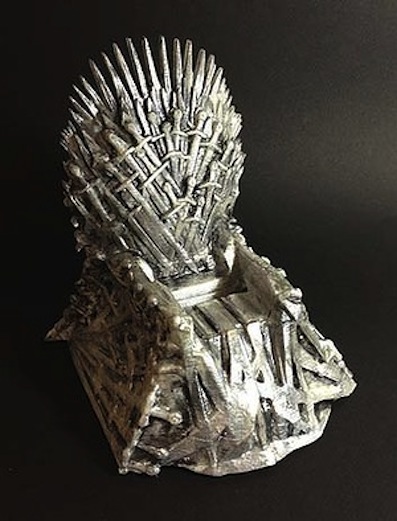
Consumer 3D printers, suitable for home use, are now available for as little as $600, while the kind of commercial quality 3D printer previously only found in factories can now be installed at home or in small manufacturing start-ups for only a $1000 more. And with websites like Thingiverse.com providing easy access to all sorts of designs and blueprints, the home user or small producer can now build everything from toy robots and prosthetic hands, to plastic gun parts or busts of Richard III’s face.
The potential for all sorts of creativity and invention is huge, however the number of cases of big companies, copyright, trademark and patent owners, taking action against small designers and manufacturers is increasing.
Jeff Cusson, HBO’s legal spokesman said,”We’re indifferent to the technology. If you are going to infringe on our copyright, we are going to take steps to prevent you from doing so.”
Fernando Sosa who’s Nuproto manufacturing start-up used a Delta Micro Factory machine costing under $1650 to produce the infringing accessory said, “It’s going to be a problem for the future. A lot of new products are going to come out, and big companies are going to squash the little companies.”
Some companies, like toy manufacturer LEGO, are embracing the technology, as long as the items produced aren’t being used for commercial purposes. LEGO fans are using 3D printers to make bricks that expand the possibilities of the LEGO sets they have bought. One popular design allows kids to adapt Lego bricks so they can use them with wooden train tracks made by another toy manufacturer, Brio.
Personal use is fine, said Lego spokesman Roar Rude Trangbaek. Offering adaptations for sale may cross a legal line. “We will definitely want to pursue infringements as and when we see them, in order to ensure the protection of our brand and ultimately the consumers,” he said.
